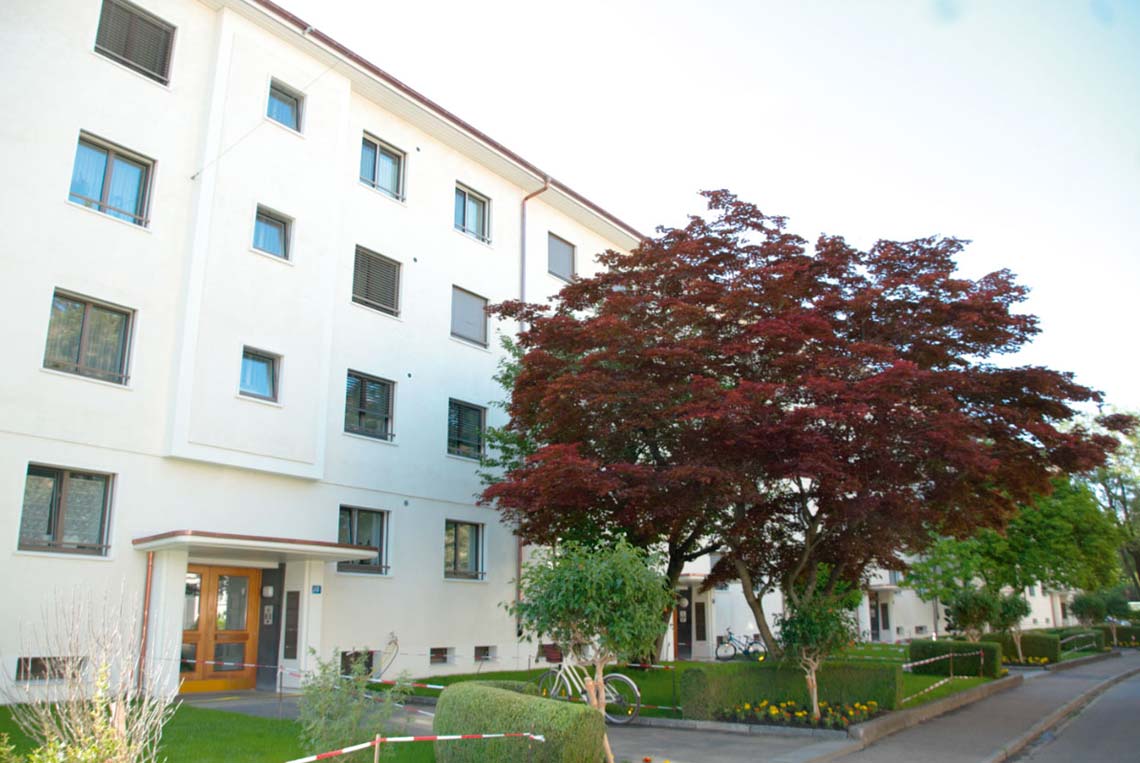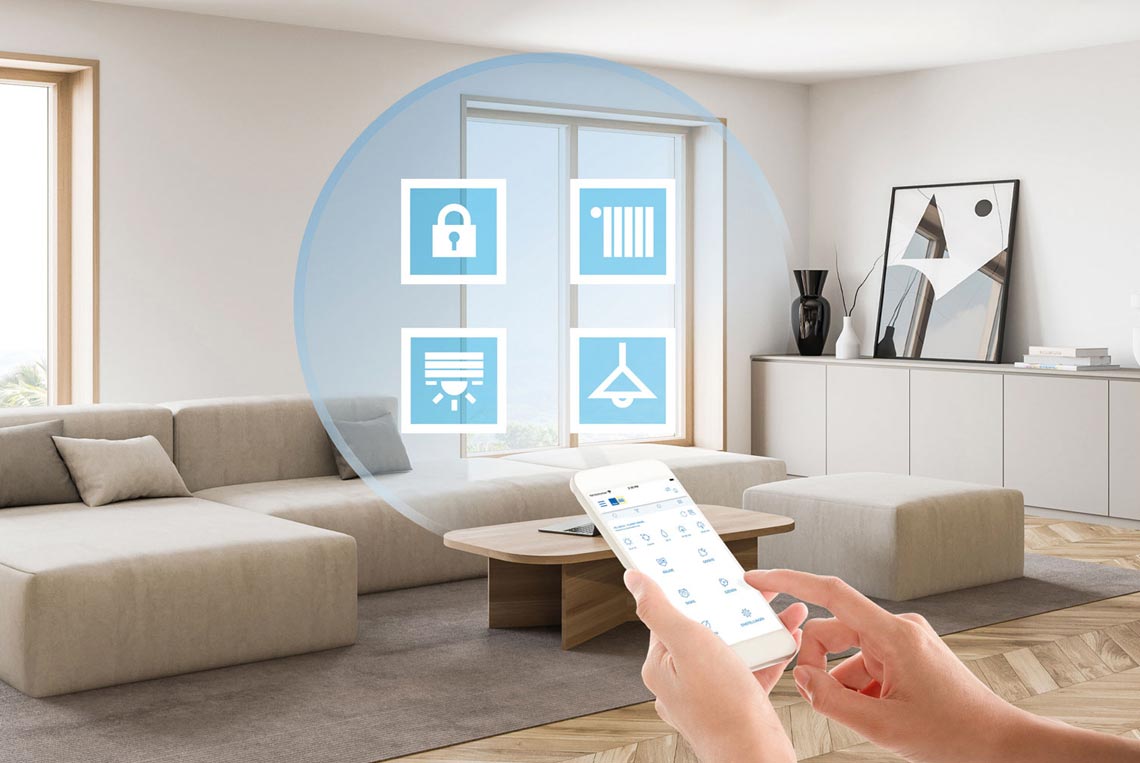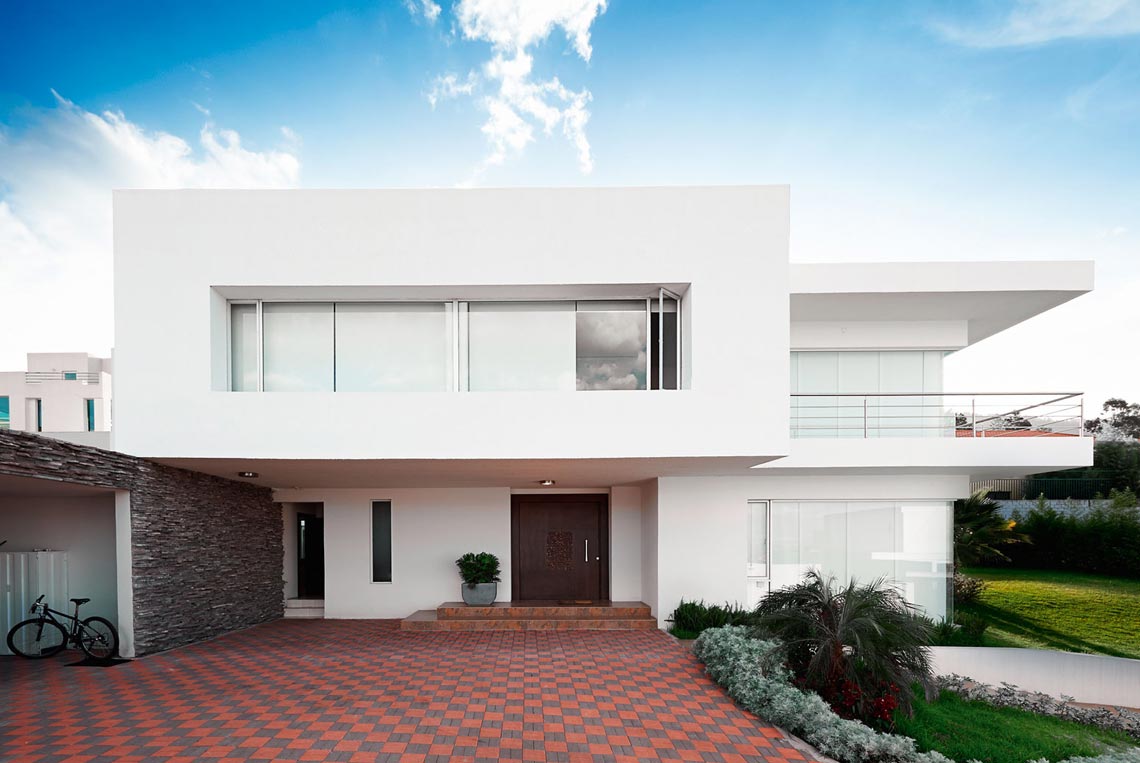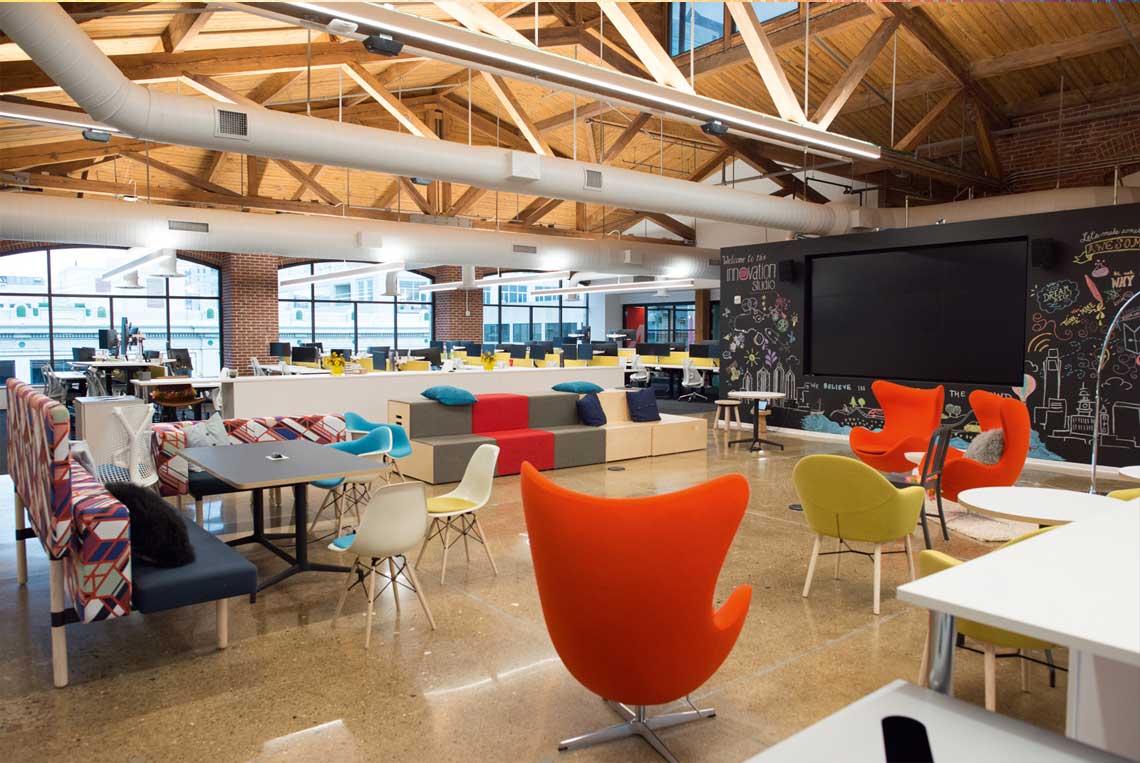Scoring points with EnEV 2014
Issue 01-2015:
read all articles online
read as pdf
The self-learning and self-sufficient individual room control “en:key” earns a five percentage-point bonus in the KfW building efficiency program.
The German Energy Conservation Regulation EnEV 2014 requires the primary energy demand in new buildings to be 25 percent below the currently valid reference values, starting on January 1, 2016. Intelligent building automation reduces energy consumption much more economically than insulation. One measure that offers a particularly good cost/benefit ratio is a self-learning individual room control system with usage time detection.
KfW rewards self-learning individual room control system
The German government-owned development bank KfW has confirmed that it would recognize self-learning individual room control systems that offer presence detection and incorporate user behavior as a criterion for savings potential in its EnEv energy balance assessment for KfW efficiency homes. When performing the balance assessment required by EnEV in accordance with DIN V 18599: 2011-12, the building automation and building management systems can be defined as “Class A” systems according to Part 11. It is also permitted, according to the KfW’s FAQs, to reduce the building’s thermal heat demand by five percent across the board in the calculation according to DIN V 4701-10. In a single-family home, optimizing the building services makes it possible to very economically upgrade the “simple” KfW 70 efficiency home to a “Class A” KfW 70 efficiency home solely through intelligent individual room control.
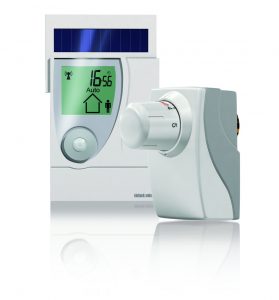
Self-sufficient operation preferred
Moreover, an autonomous individual room control can save up to 20 percent of the heating costs through energy-efficiency measures. This also ensures a positive balance on the energy certificate. Using the “en:key” individual room control from Kieback&Peter makes this efficiency measure twice as lucrative. After all, the self-sufficient system also saves maintenance and installation costs, thanks to EnOcean technology.
In the FAQs on the guidelines to the KfW 151, 153 and 430 programs, the development bank indicates that “self-sufficient systems are to be given priority” in selecting self-learning individual room control systems. This includes the mass-market “en:key” system from Kieback&Peter.
New articles in Smart Home
Top articles

